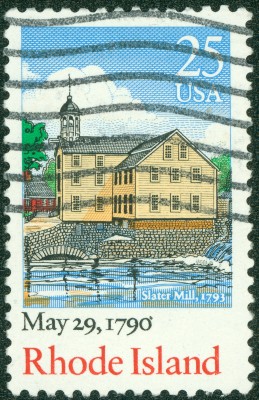For those of you who have read my earlier blogs, you will know that I have a special spot in my heart for adoptees seeking lost relatives, or those wondering how do I find lost relatives. That’s why I am especially happy to report that this past week, just two days before we celebrated the 236th anniversary of American Independence Day, Rhode Island opened the state’s pre-adoption birth records, marking the first time adoptees’ original birth records have been available since the state sealed them in 1944. The law was adopted (no pun intended) September 2011, and the records were opened July 2, 2012. Adoptees born in Rhode Island who are 25 years or older now have the freedom to discover their biological roots and lineage.
Already there has a been a tremendous response — more than 350 people signed up to receive their birth records prior to July 2012 — which suggests there is an overwhelming number of people anxious to learn more about their origins. Colleen Fontana, the Rhode Island State Registrar of the Office of Vital Records, said that the state has some 18,000 sealed records of adoptees dating back to the 1800s, so who knows what long-time genealogical mysteries may soon be solved.
[Opening up the records is] “another affirmation of civil rights, human rights, justice,” said Steven Costantino, Secretary of Health and Human Services, which oversees the state’s Vital Records agency. I cannot help but agree with Mr. Costantino that knowledge of one’s biological roots is extremely important for many. It is not just a matter of knowing what diseases run in the family, food allergies, and other medical information; instead, it can be a deep-seated need to feel “rooted” and part of something bigger than oneself.
Could this cause complications for living biological parents who want to retain privacy, wishing for no contact with a child they put up for adoption? Indeed it might…quite possibly for every exultant adoptee, there are several biological parents who fear a disruption in their lives if these children located them. It is a delicate issue for sure and one for which there is no easy answer. We can only hope that there will be more joyful reunions and positive experiences than negative or harmful experiences. In the big picture, however, ensuring that each person has access to their own personal family history may well outweigh other concerns.
I have spent many years helping families find lost relatives, as well as locate living relatives, and I am happy to report that the experiences have been overwhelmingly positive. It is true, on occasion there has been the rejecting mother or family who wants nothing to do with the adoptee; but for the most part, mothers and even fathers are overjoyed finally to reconnect with a lost child and to feel reassured that they were okay, that the child lived a good life, and that they might now have some sort of relationship with one other.
One of my favorite cases was reuniting an 85-year-old father with his previously unknown 63-year-old son! This is the kind of experience that genealogists live for because it gives a real sense of purpose to this work. It was thrilling to know that we had helped reunite this family. It turned out our client not only had two new siblings but was finally able to meet his father and spend precious time with him while he was still alive.
The sad cases are when the birth parents are now deceased and there are no surviving descendants or relatives to help fill in the blanks, or provide family photos, or tell family stories. I have also worked on such cases and experienced the disappointment along with a client when the family either refuses to have contact or when there are no surviving family members to fill in the story. Most of us want to know our story, how we got here, who our parents are, who we look like, and why we are the way we are.
For expert advice on locating and finding lost relatives, finding living relatives and biological family, or to find birth mother and birth parents contact us.







